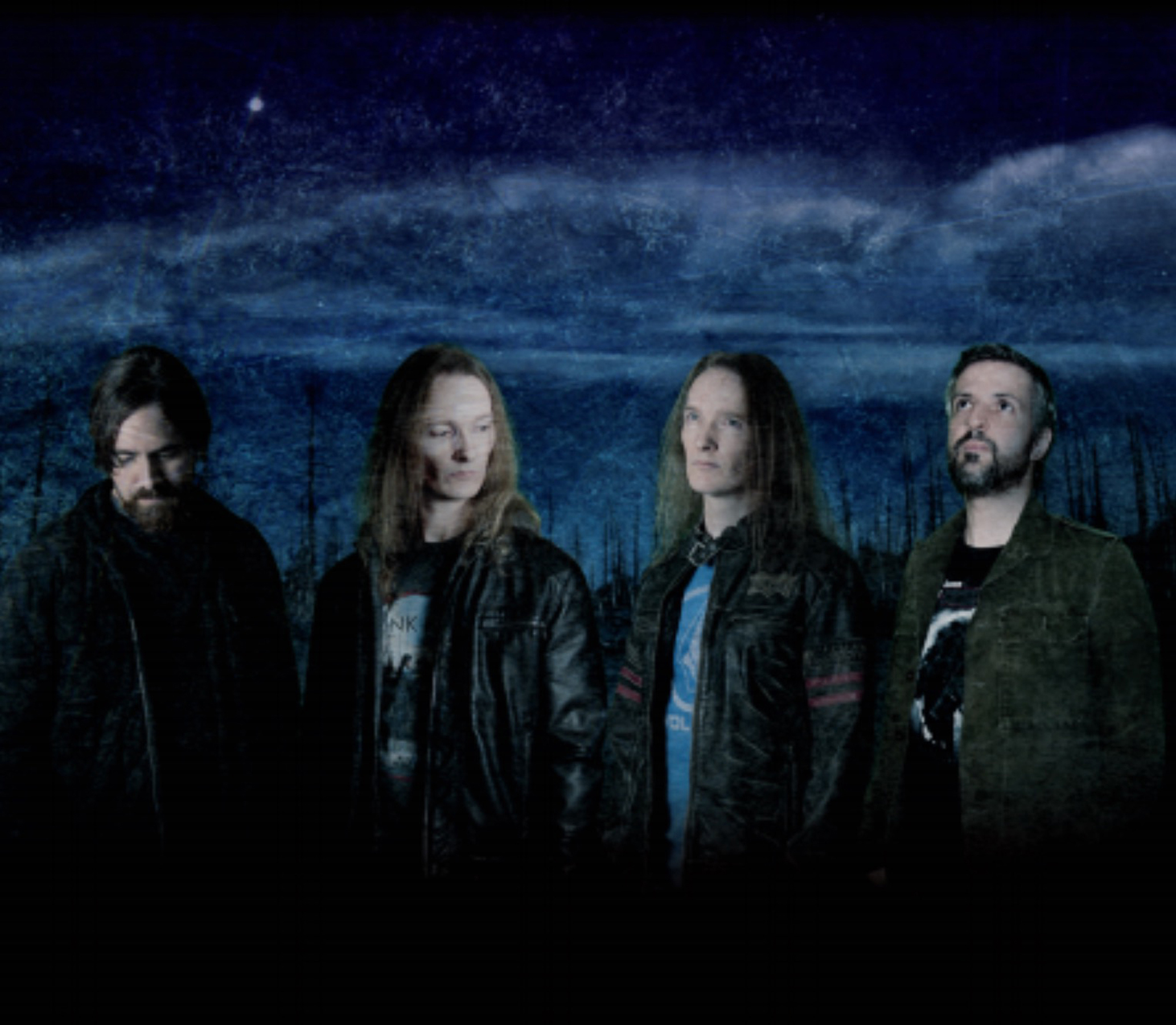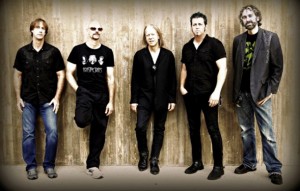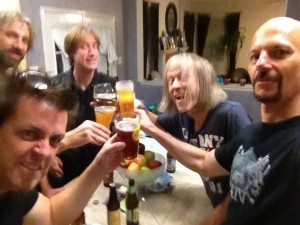(CYNNORMAL LAB RECORDINGS; 2018)

Survival stories are the threads that we cling to when we are at our lowest. “If that person can overcome the things that should have destroyed them then, surely, I can overcome, too.” When we see or hear about someone who has overcome a devastating loss, a child who overcomes a withering illness or an unimaginable injury, we cheer, we cry tears of joy and triumph, we are moved to be… better. When a musician suffers such an injury and faces not only their own humanity but, the prospect of losing – not only their job, but the ability to create, to help or heal others through their music. Troy Tipton was on top of the indie-metal world, playing bass in Zero Hour, among others, when an injury and subsequent surgery left him unable to play. But, he overcame and, though he was unable to return to the bass, he truly found his voice. Literally. His family and band members say that Troy has always had a great voice; now, that voice has allowed him to create once more. FACING THE INCURABLE is Troy’s victory lap and it is not only catharsis for him, it is incredibly moving.

“Resist,” at 14 minutes sets the standard for what a great slice of heavy progressive rock should be. Troy wrote the lyrics and melodies and says the song is “is about the struggles I personally went through after having my left arm unsuccessfully operated on. I had been playing the bass guitar for twenty-five years before I was forced to hang it up. So many changes have occurred in my life since the day of my surgery. I am so grateful for the years of emotional support I’ve received from my twin brother, my father, and my wife. Paul Villarreall did an amazing vocal performance delivering the message.” And, Paul’s vocals are quite impressive, backed by heavy bass and drums while Troy’s brother, Jasun, supplies an ethereal guitar sound that still delivers some beefy riffage when needed, as well as keyboards that are atmospheric and definitely on-point for the musical style. A sobering piece of lyrical beauty, “Facing the Incurable” sends a shiver down the spine. Troy’s lyrics and vocals take center stage with several spoken word passages, delivering a message of hope to the millions facing debilitating, life-altering injuries or diseases. Jasun’s guitars coarse and weave over, under and through a stunningly effective slow groove with solid (dare I say, stellar?) underpinning from the rhythm section of bassist Brian Hart and drummer Marco Bicca. “Human Obsolescence,” about the fragile nature of our existence, features beautiful piano and a chiming guitar that powers the tune. Troy’s vocals are haunting and provocatively effective, coming off sounding a lot like Dennis DeYoung (if Dennis DeYoung were cool and not some clownish Vegas lounge singer), while Marco’s understated but powerful drumming and Brian’s nearly passive bass work play into the piece perfectly.

Even though “Poisoning the Well” was written – with lyrics from Zero Hour’s Erik Rosvold – and the guitar parts (which are more percussive strokes rather than a series of notes, except for the solo) and vocals (also by Rosvold) were recorded several years ago, it fits perfectly within the theme and feel of the album. The drums and bass echo the brutal, heavy chords of the guitar making for a stark but striking piece of metal magic. “Missing” was the first song written and prompted in Troy a desire to try his hand at lyric writing, as well as singing them. Beautiful, fragile playing (including keys from guest Bill Jenkins of Enchant and Thought Chamber fame) gives way to a brittle vocal from Troy counterbalanced by a soaring performance by Luda Arno (Troy’s vocal coach) which, in turn, gives way to one of the most beautiful, evocative guitar solos you will ever hear. Is the number a cry of anguish to a love lost, a soul lost or a life lost? Hope amid the infinite struggle to merely be, to overcome any obstacle is the underlying, overwhelming theme of FACING THE INCURABLE; everything is summed up in this single, nearly nine-minute piece. The shortest track on the album, “Separation Anxiety,” is an instrumental that features Hart’s dexterous bass work and the supple, powerful drumming of Bicca with solid jabs of light from Jasun’s guitar interspersed with short, fleet-fingered runs. Though the tune is exceptionally good, amply displaying the instrumentalists’ abilities, it does come across as rather a second-thought add on to the basic concept of the album as a whole. Coming as it did, while I was facing uncertainties of my own (though, to be sure, nothing to the extent that Troy Tipton had experienced), this record is like a restorative balm to the soul; thank you for sharing it with us.



